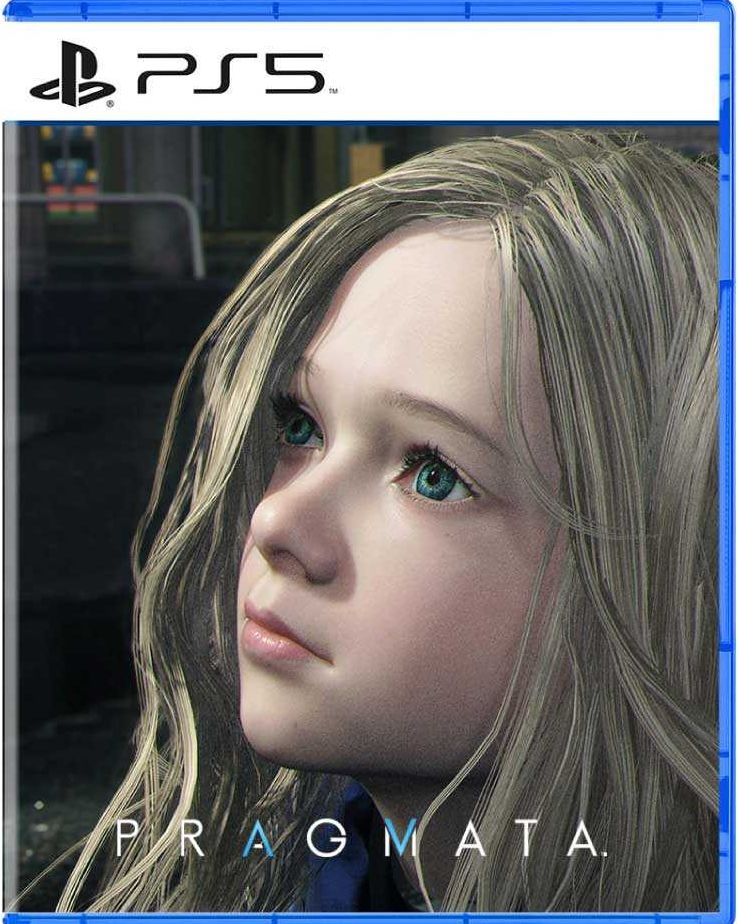CAPCOM大作《虛實萬象》將於明年上市
《虛實萬象》(日文名稱:プラグマタ,英文名稱:Pragmata)是日本遊戲大廠 Capcom 卡普空公開的原創科幻動作冒險遊戲。最初於2020年首次曝光,因其獨特的月球末日風格與哲學式敘事吸引玩家關注。歷經多次延期後,官方於2025年6月再次釋出最新宣傳影片,並確認將於2026年在PlayStation 5、Xbox Series X|S與 PC(Steam)平台正式推出。
背景設定在不遠的近未來,敘述人類曾試圖在月球建立殖民地,卻因為一次未公開的災難導致整個殖民行動徹底失敗。人類被迫全面撤退,甚至封鎖與月球的連結,防止任何人工智慧或機器人回返地球。此後,整個月球成為一片遺棄之地,唯有倖存的機器人與無人系統持續自我運作。在這樣的末日景象中,主角是擁有自我學習能力的人工智能機器人休(Hugh)。在殘破荒涼的基地中,逐漸發展出獨立思考的意識,並在與神秘少女「黛安娜」的相遇下,開始對「地球」與「人類」產生渴望與追尋。
故事核心圍繞主角機器人對人性與自由意志的探索。他原本是執行任務的工具,卻在漫長的孤獨與不斷演化的演算過程中,逐漸模擬出人類的情感與意識。這樣的成長過程不僅改變他對「存在」的理解,也讓他背負起想要逃離月球、回歸地球的願望。而這場旅程的背後,牽連著更多有關失落文明、月球災變真相以及人類與機器之間邊界的根本質疑。
在玩法設計上,融合第三人稱視角的動作探索、解謎系統與潛行元素。穿越一個逐漸崩壞的虛擬與實體交錯世界,這個世界既真實又虛幻。透過特殊的視覺過濾器與資料重構能力,能重建遺失的記憶、觀察不同維度的資訊,解開藏在廢墟背後的歷史與謎團。主角具備模組化改造的身體,可以依據收集到的材料升級或變形,在不同情境中選擇最合適的能力與工具。這不僅強化角色的實用性,也加深「自我建構」這一主題的哲學探討。
在技術方面,採用旗下RE ENGINE引擎打造本作,全面提升畫面表現力與真實感。從月球表面的重力失衡到太空碎片漂浮的細節、從主角身體的金屬質感到黛安娜那近似人類的眼神,每一幀畫面都展現極高的視覺水準。尤其是在瘴氣瀰漫的場景中,光影的變化與音場設計營造出極具壓迫感的孤寂氛圍,讓玩家彷彿身處於被遺棄的宇宙角落。
此外,音效方面也經過全面重製與混音處理,支援3D音場與空間聲響,提供更具臨場感的體驗。無論是在機械通道中回盪的回聲、警報聲中交錯的低頻震動,或是在虛擬介面中播放的模糊語音,都強化「記憶錯位」與「身份模糊」的核心主題。
玩家與媒體普遍對《虛實萬象》保持高度期待。雖然仍未上市,但多家遊戲媒體如IGN、Eurogamer與日本的4Gamer對其預告所呈現出的藝術風格與敘事潛力給予正面評價。許多評論指出,本作有潛力成為新世代遊戲中,結合深層哲學與高水準遊玩體驗的代表之作。
總結而言,《虛實萬象》不只是關於月球殖民與AI覺醒的科幻冒險,更是對人性、自我意識與自由意志的細膩書寫。代表Capcom在原創敘事上的新嘗試,也象徵著次世代主機上,科幻遊戲可以擁有更深刻內涵與高度藝術表達的可能。這將無疑將成為2026年最值得關注的遊戲之一。
Pragmata (Japanese title: プラグマタ) is an original sci-fi action-adventure game developed and published by renowned Japanese game company Capcom. Initially unveiled in 2020, the game quickly garnered attention for its unique lunar dystopian aesthetic and philosophical narrative. After multiple delays, Capcom released a new trailer in June 2025 and confirmed that the game will officially launch in 2026 on PlayStation 5, Xbox Series X|S, and PC via Steam.
Set in a not-so-distant future, the story begins with humanity’s failed attempt to colonize the moon. Following a mysterious and undisclosed catastrophe, the colonization effort collapses entirely. Humans are forced to retreat, severing all connections with the moon to prevent any AI or robotic entities from reaching Earth. The moon is abandoned, left to autonomous machines and AI systems that continue operating in isolation. Amid this desolate setting, the protagonist emerges—a self-learning artificial intelligence robot named Hugh. Within the ruins of a lunar base, Hugh gradually develops independent thought, and after encountering a mysterious young girl named Diana, he begins to yearn for Earth and to understand the essence of humanity.
At the heart of the story lies Hugh’s journey of exploring humanity and the concept of free will. Initially built as a utilitarian tool, Hugh slowly evolves through loneliness and recursive learning, eventually simulating human-like emotions and consciousness. This transformation reshapes his understanding of existence and compels him to escape the lunar wasteland in pursuit of Earth. Beneath his journey, however, lies a deeper narrative involving lost civilizations, the truth behind the lunar disaster, and philosophical questions about the blurred boundaries between man and machine.
In terms of gameplay, Pragmata features third-person action-exploration mechanics, integrated with puzzle-solving and stealth elements. Players will traverse a collapsing world where virtual and physical realities intertwine—a space that is simultaneously real and illusory. Using special visual filters and data reconstruction abilities, Hugh can recover lost memories and perceive multi-dimensional information to uncover the hidden history and secrets buried in the ruins. His modular robotic body can be upgraded or transformed using collected materials, allowing him to adapt with different abilities and tools according to the situation. This gameplay mechanic not only enhances the character’s versatility but also deepens the game’s philosophical exploration of "self-construction."
On the technical side, Pragmata is built using Capcom’s proprietary RE ENGINE, which significantly enhances the visual fidelity and realism of the game. From the uneven gravity on the moon’s surface to the floating debris in space, and from the metallic textures of Hugh’s body to Diana’s strikingly human-like expressions—every frame demonstrates a high level of graphical polish. The game especially shines in areas filled with toxic fog, where lighting and sound design create a haunting atmosphere of solitude, immersing players in an abandoned corner of the cosmos.
The sound design has also been entirely remastered and remixed to support 3D spatial audio, delivering a deeply immersive experience. Whether it’s the echo of footsteps in mechanical corridors, the low-frequency rumble of alarms, or the muffled voices heard through distorted interfaces, the soundscape reinforces the game’s core themes of fragmented memory and blurred identity.
Players and critics alike have expressed strong anticipation for Pragmata. Although the game has yet to be released, several gaming media outlets—such as IGN, Eurogamer, and Japan’s 4Gamer—have given positive feedback based on the trailers, praising its artistic direction and narrative potential. Many reviewers believe the game has the potential to become a standout title of the new generation, merging profound philosophical themes with a high-caliber gameplay experience.
In summary, Pragmata is more than just a science fiction adventure about lunar colonization and AI awakening—it’s a delicate meditation on humanity, consciousness, and the nature of free will. The game represents Capcom’s bold new step into original narrative territory and illustrates how sci-fi games on next-generation platforms can deliver both intellectual depth and artistic expression. Without a doubt, Pragmata is poised to be one of the most anticipated and thought-provoking releases of 2026.

- 1
- 2
- 3
- 4
